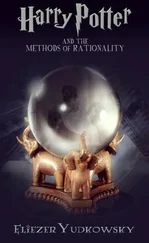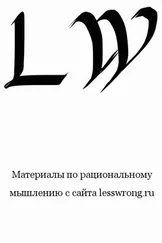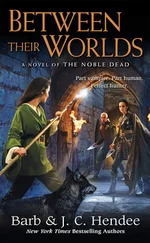Элиезер Юдковски - Three Worlds Collide
Здесь есть возможность читать онлайн «Элиезер Юдковски - Three Worlds Collide» весь текст электронной книги совершенно бесплатно (целиком полную версию без сокращений). В некоторых случаях можно слушать аудио, скачать через торрент в формате fb2 и присутствует краткое содержание. Жанр: Фантастика и фэнтези, на английском языке. Описание произведения, (предисловие) а так же отзывы посетителей доступны на портале библиотеки ЛибКат.
- Название:Three Worlds Collide
- Автор:
- Жанр:
- Год:неизвестен
- ISBN:нет данных
- Рейтинг книги:4 / 5. Голосов: 1
-
Избранное:Добавить в избранное
- Отзывы:
-
Ваша оценка:
- 80
- 1
- 2
- 3
- 4
- 5
Three Worlds Collide: краткое содержание, описание и аннотация
Предлагаем к чтению аннотацию, описание, краткое содержание или предисловие (зависит от того, что написал сам автор книги «Three Worlds Collide»). Если вы не нашли необходимую информацию о книге — напишите в комментариях, мы постараемся отыскать её.
Three Worlds Collide — читать онлайн бесплатно полную книгу (весь текст) целиком
Ниже представлен текст книги, разбитый по страницам. Система сохранения места последней прочитанной страницы, позволяет с удобством читать онлайн бесплатно книгу «Three Worlds Collide», без необходимости каждый раз заново искать на чём Вы остановились. Поставьте закладку, и сможете в любой момент перейти на страницу, на которой закончили чтение.
Интервал:
Закладка:
Babyeaters began to adapt to their more complex societies. Honor, friendship, the good of our tribe -
the Babyeaters acquired many of the same moral adaptations as humans, but their brains reused the
emotional circuitry of infanticide to do it.
"The Babyeater word for good means, literally, to eat children."
The Xenopsychologist paused there, taking a sip of water. Pale faces looked back at her from around the table.
The Lady Sensory spoke up. "I don't suppose... we could convince them they were wrong about that?"
The Ship's Confessor was robed and hooded in silver, indicating that he was there formally as a
guardian of sanity. His voice was gentle, though, as he spoke: "I don't believe that's how it works."
"Even if you could persuade them, it might not be a good idea," said the Xenopsychologist. "If you convinced the Babyeaters to see it our way - that they had committed a wrong of that magnitude - there isn't anything in the universe that could stop them from hunting down and exterminating themselves.
They don't have a concept of forgiveness; their only notion of why someone might go easy on a
transgressor, is to spare an ally, or use them as a puppet, or being too lazy or cowardly to carry out the vengeance. The word for wrong is the same symbol as mercy, you see." The Xenopsychologist shook her head. "Punishment of non-punishers is very much a way of life, with them. A Manichaean, dualistic view of reality. They may have literally believed that we ate babies, at first, just because we didn't open fire on them."
Akon frowned. "Do you really think so? Wouldn't that make them... well, a bit unimaginative?"
The Ship's Master of Fandom was there; he spoke up. "I've been trying to read Babyeater literature,"
he said. "It's not easy, what with all the translation difficulties," and he sent a frown at the Lord Programmer, who returned it. "In one sense, we're lucky enough that the Babyeaters have a concept of fiction, let alone science fiction -"
"Lucky?" said the Lord Pilot. "You've got to have an imagination to make it to the stars. The sort of species that wouldn't invent science fiction, probably wouldn't even invent the wheel -"
" But, " interrupted the Master, "just as most of their science fiction deals with crystalline entities - the closest they come to postulating human anatomy, in any of the stories I've read, was a sort of giant sentient floppy sponge - so too, nearly all of the aliens their explorers meet, eat their own children. I doubt the authors spent much time questioning the assumption; they didn't want anything so alien that their readers couldn't empathize. The purpose of storytelling is to stimulate the moral instincts, which is why all stories are fundamentally about personal sacrifice and loss - that's their theory of literature.
Though you can find stories where the wise, benevolent elder aliens explain how the need to control tribal population is the great selective transition, and how no species can possibly evolve sentience and cooperation without eating babies, and even if they did, they would war among themselves and destroy themselves."
"Hm," said the Xenopsychologist. "The Babyeaters might not be too far wrong - stop staring at me like that, I don't mean it that way. I'm just saying, the Babyeater civilization didn't have all that many wars. In fact, they didn't have any wars at all after they finished adopting the scientific method. It was the great watershed moment in their history - the notion of a reasonable mistake, that you didn't have to kill all the adherents of a mistaken hypothesis. Not because you were forgiving them, but because they'd made the mistake by reasoning on insufficient data , rather than any inherent flaw. Up until then, all wars were wars of total extermination - but afterward, the theory was that if a large group of people could all do something wrong, it was probably a reasonable mistake. Their conceptualization of probability theory - of a formally correct way of manipulating uncertainty - was followed by the dawn of their world peace."
"But then -" said the Lady Sensory.
"Of course," added the Xenopsychologist, "anyone who departs from the group norm due to an actual inherent flaw still has to be destroyed. And not everyone agreed at first that the scientific method was moral - it does seem to have been highly counterintuitive to them - so their last war was the one where the science-users killed off all the nonscientists. After that, it was world peace."
"Oh," said the Lady Sensory softly.
"Yes," the Xenopsychologist said, "after that, all the Babyeaters banded together as a single super-group that only needed to execute individual heretics. They now have a strong cultural taboo against wars between tribes. "
"Unfortunately," said the Master of Fandom, "that taboo doesn't let us off the hook. You can also find science fiction stories - though they're much rarer - where the Babyeaters and the aliens don't
immediately join together into a greater society. Stories of horrible monsters who don't eat their children. Monsters who multiply like bacteria, war among themselves like rats, hate all art and beauty, and destroy everything in their pathway. Monsters who have to be exterminated down to the last strand of their DNA - er, last nucleating crystal."
Akon spoke, then. "I accept full responsibility," said the Conference Chair, "for the decision to send the Babyeaters the texts and holos we did. But the fact remains that they have more than enough
information about us to infer that we don't eat our children. They may be able to guess how we would see them. And they haven't sent anything to us, since we began transmitting to them."
"So the question then is - now what?"
(2/8) War and/or Peace
The Lord Pilot jumped up, then, his face flushed. "Put up shields. Now. We don't gain anything by leaving them down. This is madness!"
"No," said the Ship's Confessor in professional tones, "not madness."
The Pilot slammed his fists on the table. " We're all going to die! "
"They're not as technologically advanced as us," Akon said. "Suppose the Babyeaters do decide that we need to be exterminated. Suppose they open fire. Suppose they kill us. Suppose they follow the starline we opened and find the Huygens system. Then what?"
The Master nodded. "Even with surprise on their side... no. They can't actually wipe out the human species. Not unless they're a lot smarter than they seem to be, and it looks to me like, on average, they're actually a bit dumber than us." The Master glanced at the Xenopsychologist, who waved her hand in a maybe-gesture.
"But if we leave the ship's shields down," Akon said, "we preserve whatever chance we have of a peaceful resolution to this."
"Peace," said the Lady Sensory, in a peculiar flat tone.
Akon looked at her.
"You want peace with the Babyeaters?"
"Of course -" said Akon, then stopped short.
The Lady Sensory looked around the table. "And the Babyeater children? What about them?"
The Master of Fandom spoke, his voice uncertain. "You can't impose human standards on -"
With a blur of motion and a sharp crack, the Lady Sensory slapped him.
The Ship's Confessor grabbed her arm. "No."
The Lady Sensory stared at the Ship's Confessor.
"No," the Confessor repeated. "No violence. Only argument. Violence doesn't distinguish truth from falsehood, my Lady."
The Lady Sensory slowly lowered her hand, but not her eyes.
"But..." said the Master. "But, my Lady, if they want to be eaten -"
"They don't," said the Xenopsychologist. "Of course they don't. They run from their parents when the terrible winnowing comes. The Babyeater children aren't emotionally mature - I mean they don't have their adult emotional state yet. Evolution would take care of anyone who wanted to get eaten. And they're still learning, still making mistakes, so they don't yet have the instinct to exterminate violators of the group code. It's a simpler time for them. They play, they explore, they try out new ideas.
Читать дальшеИнтервал:
Закладка:
Похожие книги на «Three Worlds Collide»
Представляем Вашему вниманию похожие книги на «Three Worlds Collide» списком для выбора. Мы отобрали схожую по названию и смыслу литературу в надежде предоставить читателям больше вариантов отыскать новые, интересные, ещё непрочитанные произведения.
Обсуждение, отзывы о книге «Three Worlds Collide» и просто собственные мнения читателей. Оставьте ваши комментарии, напишите, что Вы думаете о произведении, его смысле или главных героях. Укажите что конкретно понравилось, а что нет, и почему Вы так считаете.





